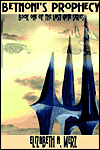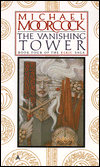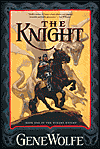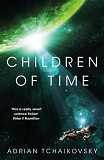
Betnoni's Prophecy, by Elizabeth Merz
Book Review by Eric J. Brooks
Have you read this book?
The most important two words which need first be written in describing Betnoni's Prophecy, are profoundly real.
Elizabeth Merz has channeled a world strongly anchored in a desert planet styled science fiction, with soul stirring magical fantasy embellishments deftly employed throughout like fine saffron in an earthily spiced middle-eastern dish.
Yet despite this air of the fantastic surrounding them, the book's characters and their complex interactions, are the most to the bone real that I have ever experienced in science fiction, even when compared to those in the novels of Ray Bradbury or Jack Vance.
The narrative follows, from its beginnings in a deep desert land, the life paths of two central characters. One is Gella, a young innately and piercingly independent woman of an oppressed race. The other is her soul mate, guardian and friend, Cobo, the heir to a legacy of thousands of years of dimly understood inner magical power, who had at some time previous turned away from that legacy, to then come across and adopt Gella as a chosen sister, to save her from a life of child slavery.
Gella now in her twenties, they leave their desert humbly, on foot in plebeian garb, and then gradually, they become more and more naturally entwined in political maneuverings and struggles between peoples, in which they are required to become more and more bold and self possessed, as the story plays on. Eventually, they must each choose to embrace the pasts that they had hoped to leave behind, Gella to join her fellow Shodite people in resistance of their oppression by the people of Cobo's own race, the Janti; and Cobo, to embrace the powerful magical legacy he had rejected, in order to try to guide his people away from their slave holding, and to free Gella's people.
This progression, and the actions, thoughts and lives of all of the book's characters, are played forth in such a carefully detailed and natural way, that when looking out through the eyes of whichever character one is in the midst of inhabiting through the reading, one always feels that one is experiencing completely true reality, no matter how fantastic the circumstances or magical influences.
This same sense of detailed reality, is equally matched in the interactions of the varied races and cultures of that world, as they conflict and/or join with each other throughout the story.
The author accomplishes this so well, that a deeper result also becomes clear. She not only gives us the experience of real events in some distant time or solar system, but makes these so real, that we recognize in their reflection actual events currently playing themselves out in our own world here on Earth.
Merz however, sloughs off previous forms of political allegory like Frank Herbert's science fiction epic Dune; which is a powerful yet grandiose Lawrence of Arabia styled examination of the post colonial Middle East churning under great imperial pursuits to monopolize its oil, (for which "the spice" is the metaphor in Herbert's novels.) Likewise Herbert's "Fremen" are a sort of 'noble savage' representation of the Arabic people's of the Middle East.
Instead, she gives us a true allegory of the Middle East, (with shades of the bitterly caste divided and religiously torn modern India) which turns our inner eye to feel with perfect clarity the actual human joys, loves, pains and tragedies that real people in those places must be feeling in today's visceral and complex reality; both the weak and the strong, the noble and the timid.
Far from clutching us down into some mundane despair, this realism lifts us into exaltation with the characters' lives. For while the heroic, the strange technological, and the magical are ever present, never leaving our science fiction reader blood wanting for that charge of otherness, still, when two characters are experiencing real moments of love, with its corresponding unique and out of balance but quaint little interactions, we really feel it ourselves; we recall our own such moments. When a character overcomes oppression or danger we connect with this directly, we are there with her, in her skin, and we feel what it is like to truly win a battle for inner strength and outer respect in the face of her opponents, who have their own equally well defined inner conflicts, honest hopes, and good impulses struggling with the bad.
By the time all of these elements culminate in the various endings of different narrative lines of the story toward the close of this first book, we are deeply enrapt with all of its characters, whatever their moralities and motivations. Merz then fully electrifies our already charged sensibilities with excellent plot twists and completions, in and of themselves, to bring the whole to a rousing finish.
Herbert's lawrencian epic tale, 'noble' in its robes, turban, and 'desert power', has now, in Elizabeth Mertz's novels, a sufist poet rival, draped in simple khadi cloth, powerfully pacing out gentle lasting footprints on faraway blood tinged sands.
Betnoni's Prophecy is book one of the seven volume Last Gate series. The second volume, Cobo's Quest, is now available. For details, see the author's web site.
Elizabeth Merz has channeled a world strongly anchored in a desert planet styled science fiction, with soul stirring magical fantasy embellishments deftly employed throughout like fine saffron in an earthily spiced middle-eastern dish.
Yet despite this air of the fantastic surrounding them, the book's characters and their complex interactions, are the most to the bone real that I have ever experienced in science fiction, even when compared to those in the novels of Ray Bradbury or Jack Vance.
The narrative follows, from its beginnings in a deep desert land, the life paths of two central characters. One is Gella, a young innately and piercingly independent woman of an oppressed race. The other is her soul mate, guardian and friend, Cobo, the heir to a legacy of thousands of years of dimly understood inner magical power, who had at some time previous turned away from that legacy, to then come across and adopt Gella as a chosen sister, to save her from a life of child slavery.
Gella now in her twenties, they leave their desert humbly, on foot in plebeian garb, and then gradually, they become more and more naturally entwined in political maneuverings and struggles between peoples, in which they are required to become more and more bold and self possessed, as the story plays on. Eventually, they must each choose to embrace the pasts that they had hoped to leave behind, Gella to join her fellow Shodite people in resistance of their oppression by the people of Cobo's own race, the Janti; and Cobo, to embrace the powerful magical legacy he had rejected, in order to try to guide his people away from their slave holding, and to free Gella's people.
This progression, and the actions, thoughts and lives of all of the book's characters, are played forth in such a carefully detailed and natural way, that when looking out through the eyes of whichever character one is in the midst of inhabiting through the reading, one always feels that one is experiencing completely true reality, no matter how fantastic the circumstances or magical influences.
This same sense of detailed reality, is equally matched in the interactions of the varied races and cultures of that world, as they conflict and/or join with each other throughout the story.
The author accomplishes this so well, that a deeper result also becomes clear. She not only gives us the experience of real events in some distant time or solar system, but makes these so real, that we recognize in their reflection actual events currently playing themselves out in our own world here on Earth.
Merz however, sloughs off previous forms of political allegory like Frank Herbert's science fiction epic Dune; which is a powerful yet grandiose Lawrence of Arabia styled examination of the post colonial Middle East churning under great imperial pursuits to monopolize its oil, (for which "the spice" is the metaphor in Herbert's novels.) Likewise Herbert's "Fremen" are a sort of 'noble savage' representation of the Arabic people's of the Middle East.
Instead, she gives us a true allegory of the Middle East, (with shades of the bitterly caste divided and religiously torn modern India) which turns our inner eye to feel with perfect clarity the actual human joys, loves, pains and tragedies that real people in those places must be feeling in today's visceral and complex reality; both the weak and the strong, the noble and the timid.
Far from clutching us down into some mundane despair, this realism lifts us into exaltation with the characters' lives. For while the heroic, the strange technological, and the magical are ever present, never leaving our science fiction reader blood wanting for that charge of otherness, still, when two characters are experiencing real moments of love, with its corresponding unique and out of balance but quaint little interactions, we really feel it ourselves; we recall our own such moments. When a character overcomes oppression or danger we connect with this directly, we are there with her, in her skin, and we feel what it is like to truly win a battle for inner strength and outer respect in the face of her opponents, who have their own equally well defined inner conflicts, honest hopes, and good impulses struggling with the bad.
By the time all of these elements culminate in the various endings of different narrative lines of the story toward the close of this first book, we are deeply enrapt with all of its characters, whatever their moralities and motivations. Merz then fully electrifies our already charged sensibilities with excellent plot twists and completions, in and of themselves, to bring the whole to a rousing finish.
Herbert's lawrencian epic tale, 'noble' in its robes, turban, and 'desert power', has now, in Elizabeth Mertz's novels, a sufist poet rival, draped in simple khadi cloth, powerfully pacing out gentle lasting footprints on faraway blood tinged sands.
Betnoni's Prophecy is book one of the seven volume Last Gate series. The second volume, Cobo's Quest, is now available. For details, see the author's web site.
| Betnoni's Prophecy, by Elizabeth Merz on Amazon |
Betnoni's Prophecy, by Elizabeth Merz on Amazon

Comment on Betnoni's Prophecy, by Elizabeth Merz
| Comments on Betnoni's Prophecy, by Elizabeth Merz |
| There are no comments on this book. |



